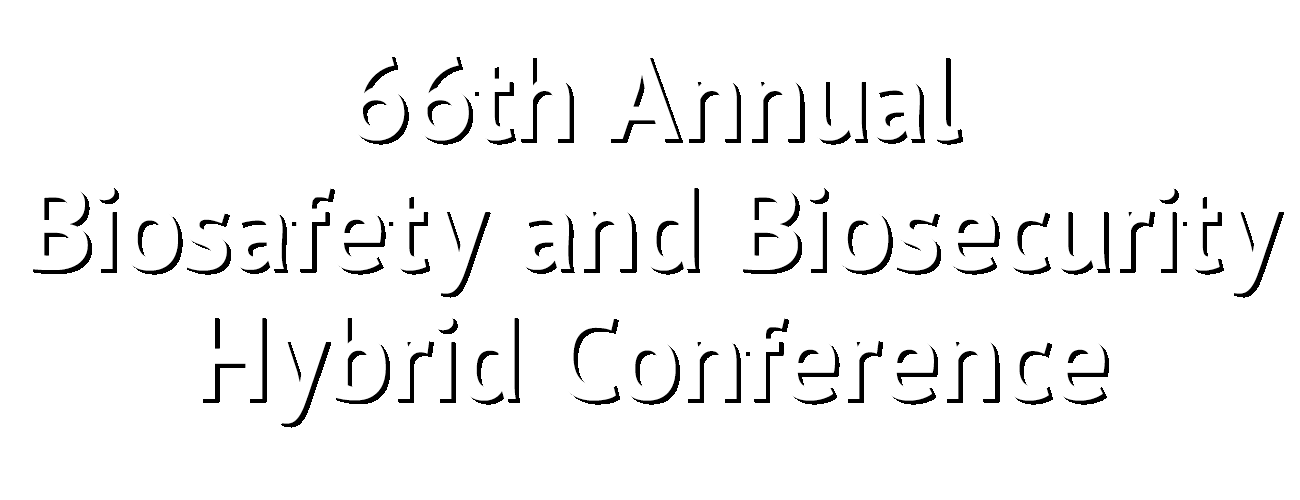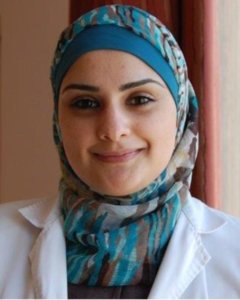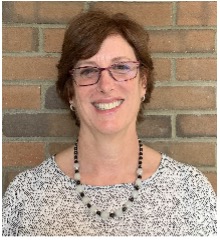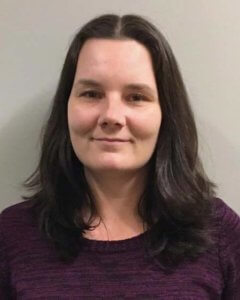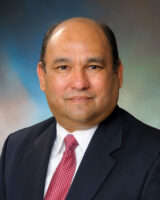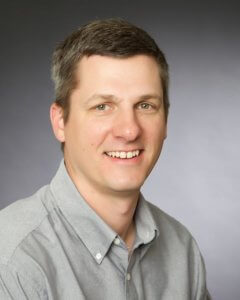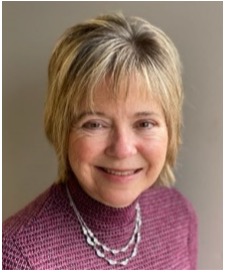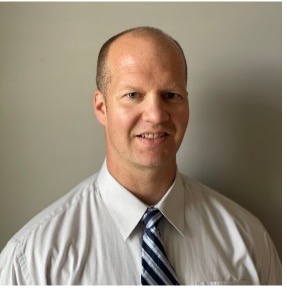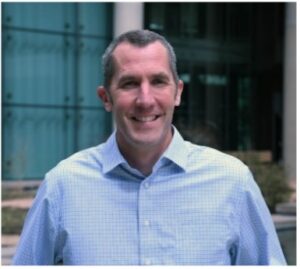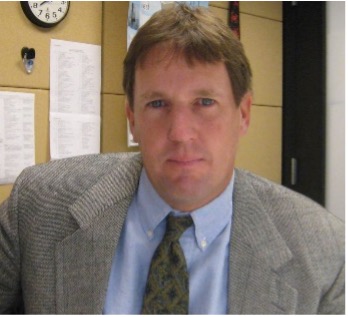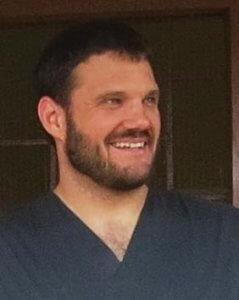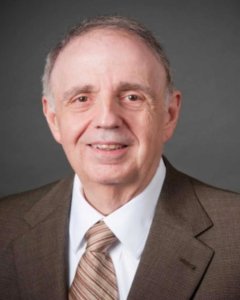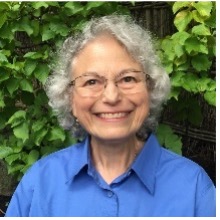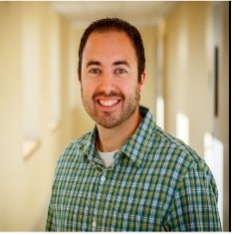Professional Development Courses
All times listed are in CENTRAL TIME ZONE
Sunday Courses
Sunday, October 15, 2023
CHI Health Center, Omaha, Nebraska
Sunday, October 15, 2023, 8:00 AM – 5:00 PM, Room 208
12. Introduction to the ISO35001: Biorisk Management for Laboratories and Other Related Organizations
As there is a demand for stringent and robust system for handling risks of biological materials internationally; ISO 35001 has been published as the first international standard that defines the requirements of the biorisk management system for laboratories or any other organization that works with biological agents. ISO 35001 complements existing international standards for laboratories, and is appropriate to the nature and scale of any laboratory or organization that works with, stores, transports, and/or disposes of hazardous biological materials. The commitment to follow the ISO35001 will enable institutions to effectively identify, assess, control, and monitor the laboratory biosafety and biosecurity risks associated with hazardous biological materials, using the concept of continual improvement through the PDCA (Plan-Do-Check-Act) principle. Institutions can use the standard as a framework for improving overall biorisk program performance, raising awareness, improving international collaboration and communication, fulfilling legal requirements and supporting lab certification.The course will start with an introduction to the ISO35001, brief introduction to the major sections including leadership, planning, support, operation, performance evaluation and improvement, followed by a discussion about how to initiate implementation to improve biorisk management system. Through facilitated discussions and activities, participants will leave the course with a plan of action to perform a gap analysis of their current management system with the new ISO standard and begin a stepwise implementation process to improve existing systems and qualify for eventual ISO35001 certification.
Objectives:
- Distinguish the ISO35001 as an international standard for laboratory biorisk management requirements
- Recognize the main sections of the ISO35001
- Explain how to initiate the use of the ISO35001 to improve the overall laboratory biorisk management system
- Plan a stepwise process to analyze and improve existing biorisk management systems to qualify for eventual ISO35001 certification
Suggested Background: Fundamentals of Biosafety
Target Audience: All Safety Professionals, New Biosafety Professionals, International Biosafety Professionals
PDC Level: Basic
COURSE FACULTY
CONTACT HOURS
This course has been approved for 1.0 CM points toward RBP/CBSP recertification. ABSA International is approved as a provider of continuing education programs in the clinical laboratory sciences by the ASCLS P.A.C.E.® Program. This course is approved for 7.5 P.A.C.E.® contact hours.
Sunday, October 15, 2023, 8:00 AM – 5:00 PM, Room 206
13. Pharmaceutical Biosafety Officer Training
The course is intended for Pharma BSOs and can be a complimentary course to Principles and Practices of Biosafety (PPB) offered by ABSA. The instructors will cover key topics such as the Biorisk Management Framework, the ISO 35001 Standard that features a high-level review of the new ISO Standard and implementation examples, and the Regulatory Framework including key regulations in U.S. and non-U.S. regulations and key differences between regions. Examples from Applied Biosafety will lead to a discussion of new technology platforms in the industry to include CRISPR, alpha virus, viral vector gene therapy, human cell lines, lab acquired infections (e.g., N. meningitis, rabies large scale infection, Brucella large-scale), improper inactivation scenarios, animal blood and tissue samples, human neurological tissue concerns, environmental release of biological agents (biological agent release scenario- how handle). This course will be interactive with a variety of group exercises where participants will review P&IDs, identify issues, propose recommendations for what would be acceptable vs. not. Also, look at HVAC, placement of equipment, types of equipment needed, room pressurization, workflow, decontamination (autoclave, HEPA, kill tanks, chemical treatment), permitting, and risk assessment completion. The course will conclude with a roundtable discussion, presentation of the group exercises, and Q&A.
Objectives:
- Identify the global biorisk management regulatory framework applicable to pharmaceutical companies
- Restate how to integrate biosafety principles into engineering design projects
- Summarize how to conduct a biorisk assessment and expectations for biosafety committee approval
Suggested Background: Fundamentals of Biosafety, Risk Assessment, Micro/Molecular Biology 101, Principles and Practices of Biosafety
Target Audience: All Biosafety Professionals
PDC Level: Intermediate
COURSE FACULTY
CONTACT HOURS
This course has been approved for 1.0 CM points toward RBP/CBSP recertification. ABSA International is approved as a provider of continuing education programs in the clinical laboratory sciences by the ASCLS P.A.C.E.® Program. This course is approved for 7.5 P.A.C.E.® contact hours.
Sunday, October 15, 2023, 8:00 AM – 5:00 PM, Room 207
14. Advanced BSL-3 Facility Operations
This advanced course is a follow up to the BSL-3 Facility Operations and Management and will focus on detailed aspects of biocontainment operations of BSL-3, ABSL-3 and enhanced BSL-3 laboratories. It will cover developing risk assessments for biocontainment equipment; facility operations and maintenance SOP’s; maintenance personnel training requirements; solid and liquid waste decontamination equipment, procedures, validations and cycle developments; area decontamination methodologies, procedures and validations; filtration systems and their validation and testing process; ventilation control methodologies and ventilation equipment configuration; facility testing during normal and failure conditions of the ventilation system; test documentation and record keeping.
Objectives:
- Explain the facility verification process in detail, including recommended test methodologies
- Identify the methodologies for decontamination of areas, equipment, filters and waste
- Describe the elements of biocontainment equipment risk assessments
Suggested Background: Fundamentals of Biosafety
Target Audience: All Safety Professionals, Experienced Biosafety Professionals
PDC Level: Advanced
COURSE FACULTY
CONTACT HOURS
This course has been approved for 1.0 CM points toward RBP/CBSP recertification. ABSA International is approved as a provider of continuing education programs in the clinical laboratory sciences by the ASCLS P.A.C.E.® Program. This course is approved for 7.5 P.A.C.E.® contact hours.
Sunday, October 15, 2023, 8:00 AM – 5:00 PM, Room 210
15. Advanced Risk Assessment
In this advanced and interactive course, participants will evaluate a variety of challenging scenarios based on actual research protocol submissions and real-world events from multiple risk perspectives. Participants will work in teams to conduct risk assessments on a diverse selection of scenarios that will include multiple systems used in research as a research project progresses from discovery to cell culture, to small animal models using recombinant materials, and human clinical trials. Risk assessments will focus on the likelihood of exposure and the severity of consequences from exposure to the multitude of hazards encountered in increasingly complex research as well as the surprises that may come across the biosafety officer’s desk. Participants will be challenged to consider additional risks aside from infection and how best to mitigate them. Participants should have a thorough understanding of pathogenic microorganisms, rDNA principles, other infectious substances and the link between biosafety, risk assessment, and risk mitigation for this advanced course. There is an emphasis on the interactive nature of the risk assessment process and differing views of risk tolerance will be considered; participants should be prepared to participate in discussions and bring interesting or difficult examples of interest to them to discuss with the class.
Objectives:
- Prioritize risks based on the likelihood and consequences of an occurrence
- Identify risks requiring mitigation and mitigation strategies to minimize the unacceptable risks
- Identify institutional and external partners to help implement mitigation strategies
- Evaluate mitigation strategies for effectiveness, adjust strategies as warranted
Suggested Background: Fundamentals of Biosafety, Microbiology, and Molecular Biology; Basic Risk Assessment, Principles & Practices of Biosafety
Target Audience: Experienced Biosafety Professionals, Laboratory Workers
PDC Level: Advanced
COURSE FACULTY
CONTACT HOURS
This course has been approved for 1.0 CM points toward RBP/CBSP recertification. ABSA International is approved as a provider of continuing education programs in the clinical laboratory sciences by the ASCLS P.A.C.E.® Program. This course is approved for 7.5 P.A.C.E.® contact hours.
Sunday, October 15, 2023, 8:00 AM – 12:00 PM, Room 209
16. Capturing and Displaying the Value of Your Biosafety Program
A recurrent challenge confronting biosafety professionals is the ability to garner necessary program resources to achieve desired goals and objectives. The basis for this difficulty is that, on a good day in the world of biosafety, “nothing bad happens”. The underlying challenge is that upper management may not fully appreciate or understand all of the effort and resources that went into making “nothing bad happen”. Biosafety professionals in particular experience difficulty in this regard because many in the profession have received intensive training in the biological sciences, but little or no training in the area of program management. This course focuses on some key management approaches and techniques that can be used within biosafety programs to help improve stakeholder understanding, which in turn can result in the provision of necessary programmatic resources. Numerous real-world examples of successful applications of the techniques presented will be displayed for review and discussion. Ample time will be provided throughout the course for participant interaction and inquiries.
Objectives:
- Identify various biosafety programmatic measures and metrics that should be captured and communicated
- Describe how biosafety programs can assist with other basic safety program needs to help avoid the notion of program duplication of efforts and to improve safety and client satisfaction levels
- Paraphrase techniques used for displaying biosafety data in ways that others can readily understand and appreciate
Suggested Background: None
Target Audience: All Biosafety Professionals, All Safety Professionals
PDC Level: Basic
COURSE FACULTY
CONTACT HOURS
This course has been approved for 0.5 CM points toward RBP/CBSP recertification. ABSA International is approved as a provider of continuing education programs in the clinical laboratory sciences by the ASCLS P.A.C.E.® Program. This course is approved for 3.5 P.A.C.E.® contact hours.
Sunday, October 15, 2023, 8:00 AM – 12:00 PM, Room 213
17. Disinfection and Sterilization: Evaluation and Validation Concepts
This course will provide biosafety professionals with an understanding of the quality assurance and evaluation tests used in sterilization and disinfection. Understanding of these tests will directly benefit the selection of quality assurance tests when validating sterilization and disinfection processes and the selection of appropriate disinfectants. Factors responsible for heat resistance of endospores and D values applied to example biological indicators will be discussed. Further material will describe factors that affect disinfectant potency. Disinfectant product labels, disinfectant tests, and neutralizers will be discussed in didactic lecture and applied in small group activities.
Objectives:
- Summarize the factors affecting disinfectant potency
- Restate disinfectant evaluation testing
- Connect technical data with disinfectant product label claims
Suggested Background: Fundamentals of Biosafety, Principles and Practices of Biosafety
Target Audience: All Safety Professionals, Laboratory Workers, New Biosafety Professionals
PDC Level: Intermediate
COURSE FACULTY
CONTACT HOURS
This course has been approved for 0.5 CM points toward RBP/CBSP recertification. ABSA International is approved as a provider of continuing education programs in the clinical laboratory sciences by the ASCLS P.A.C.E.® Program. This course is approved for 3.5 P.A.C.E.® contact hours.
Sunday, October 15, 2023, 1:00 PM – 5:00 PM, Room 209
18. Writing Effective Standard Operating Procedures
This course will offer participants an understanding of key principles for writing effective standard operating procedures (SOPs). An introduction to the importance of SOPs in achieving desirable and consistent outcomes and issues that must be considered in the SOP writing process will be presented. Examples will include some of the most common human behavior considerations such as compliance, behavioral evolution, complaisance, and strategies to address behavioral concerns that may arise. Participants will engage in guided discussions about the benefits of an effective SOP writing process and the most common mistakes made by the authors of SOPs. The course will take participants through the process of writing feasible standard operating procedures (SOPs) including SOP evaluation and validation. Through group interactions, participants will develop examples of SOPs to illustrate effective writing concepts, present their SOPs to the class, and evaluate each other’s SOPs for feasibility. Instructors will guide participants through the process by providing critical feedback on the SOP writing process as they progress. The goal of this course is to increase students’ awareness of issues that arise when writing standard operating procedures and how these issues affect SOP compliance. Furthermore, the course will provide examples of well-written SOPs that contribute to overall SOP compliance at an institution. The course is intended for those who want to be able to lead or aid in the creation of feasible and effective SOPs in order to enhance both biosafety and biosecurity at their institution.
Objectives:
- Summarize the range of issues that must be considered when writing effective standard operating procedures (SOPs), including human behavior
- Develop strategies for writing effective SOPs
- Illustrate how good standard operating procedures (SOPs) work to enhance both biosafety and biosecurity
- Recognize the value of “feasible” and therefore effective standard operating procedure (SOP) in promoting biosafety and biosecurity best practices
Suggested Background: None
Target Audience: All Safety Professionals, New Biosafety Professionals, Laboratory Workers
PDC Level: Basic
COURSE FACULTY
CONTACT HOURS
This course has been approved for 0.5 CM points toward RBP/CBSP recertification. ABSA International is approved as a provider of continuing education programs in the clinical laboratory sciences by the ASCLS P.A.C.E.® Program. This course is approved for 3.5 P.A.C.E.® contact hours.
Sunday, October 15, 2023, 1:00 PM – 5:00 PM, Room 213
19. Using the Past to Prevent Future Laboratory-Acquired Infections
Preventing laboratory-acquired infections (LAIs) is a challenge for laboratory managers and biosafety professionals, especially when dealing with an emerging pathogen. It is extremely important to quickly determine if there has been an exposure, what steps need to happen next, including any prophylaxis, root cause analysis, gaps in the biosafety plan, and additional mitigation measures that need to be implemented. This interactive course will demonstrate how real-life scenarios from the ABSA LAI Database can be used as a learning and training tool to help prevent future incidents and LAIs. This course will provide an overview of how to search the LAI database and a review of two published case studies. Participants will be shown how to use an exposure assessment tool and clinical laboratory biological exposure monitoring guide (both provided) to demonstrate that the database scenarios had resulted in an exposure. Participants will be shown how to perform a root cause analysis, apply this information to find the biosafety plan gaps, and determine what additional steps are needed to mitigate the risks. In a group discussion, participants will receive new scenarios from the database; utilize the exposure assessment tool to complete the process that was illustrated from exposure determination to performing the root cause analysis, identifying the gaps, and mitigation steps to help prevent this from happening again. Additionaly, participants will learn how to use published LAI data and these tools to determine how to safely work with an emerging pathogen.
Objectives:
- Describe how the ABSA LAI database can be used for biosafety training and determining how to safely work with emerging pathogens
- Utilize an exposure assessment tool to assess real-life laboratory incidents for potential exposures and to help guide prophylaxis if indicated
- Analyze actual laboratory incidents to determine the root cause and what steps are necessary to mitigate future incidents
Suggested Background: Fundamentals of Biosafety, Risk Assessment, Micro/Molecular Biology 101, Principles and Practices of Biosafety
Target Audience All Safety Professionals, Laboratory Workers
PDC Level: Intermediate
COURSE FACULTY
CONTACT HOURS
This course has been approved for 0.5 CM points toward RBP/CBSP recertification. ABSA International is approved as a provider of continuing education programs in the clinical laboratory sciences by the ASCLS P.A.C.E.® Program. This course is approved for 3.5 P.A.C.E.® contact hours.



